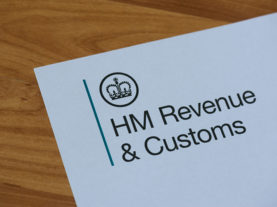The BVRLA Position Papers outline the association’s views, objectives and engagement activity relating to key policy areas affecting the industry.
Calling for:
A consistent regulatory strategy and policy framework that supports new business models and delivers cleaner, cheaper safer and more reliable journeys by:
1. Establishing an environment that supports fleet users, nurtures innovation and fosters growth for future mobility solutions
- Engage with policymakers and regulators to ensure the emerging mobility regulatory environment works for fleet operators
- Research and promote innovative policy initiatives that can help integrate new future mobility business models
- Collaborate with other stakeholders looking at Future Mobility policy
2. Creating a fair and competitive market for mobility services and access to vehicle data
- Engage with regulators and policymakers to ensure customers have freedom of choice in how they acquire their vehicles and get them serviced or repaired
- Analyse and horizon-scan the mobility services market to provide insight into emerging trends and potential disruptors such as peer-to-peer
- Explore opportunities to work with other automotive stakeholders to develop and implement connected vehicle data use cases
Future Mobility key messages
o Fleet interests must be considered by policy makers as the future mobility ecosystem policy and regulatory framework evolve.
o Access to vehicle data should not be restricted to insurance or police use cases but opened up to incentivise development of new technology, services and to promote competition.
o More central policy support is needed to help local decision makers understand and deal with new and disruptive forms of mobility. With a more consistent and strategic approach, local authorities can work with central government to create a distinct vision for MaaS that sees them take the lead.
Future Mobility key asks
o Government must ensure new shared mobility models and platforms that emerge operate on a fair and level playing field and consumers are adequately protected.
o As the regulations for Autonomous Vehicles are developed Government must engage with the fleet sector at all stages to guarantee its interests are appropriately considered.
o Block exemption regulations must be updated to maintain the status quo of highly competitive vehicle distribution and aftermarket service provision in the UK.
o Leasing, rental and leasing brokers must retain their 'end user' status in CMA's review of the retained Vertical Block Exemption Regulation.
o Regulators must ensure that fleet operators are given real-time access to vehicle data within a competitive market.
o A Mobility Innovation Fund should be established to help cash and resource-strapped local authorities work with local transport operators and residents to develop new, integrated mobility services including MaaS and Mobility Credit trials.
o The Government should look to establish a Shared Mobility Taskforce which enables all transport mode operators to work collaboratively to find solutions to common problems and identify opportunities for joint working.

